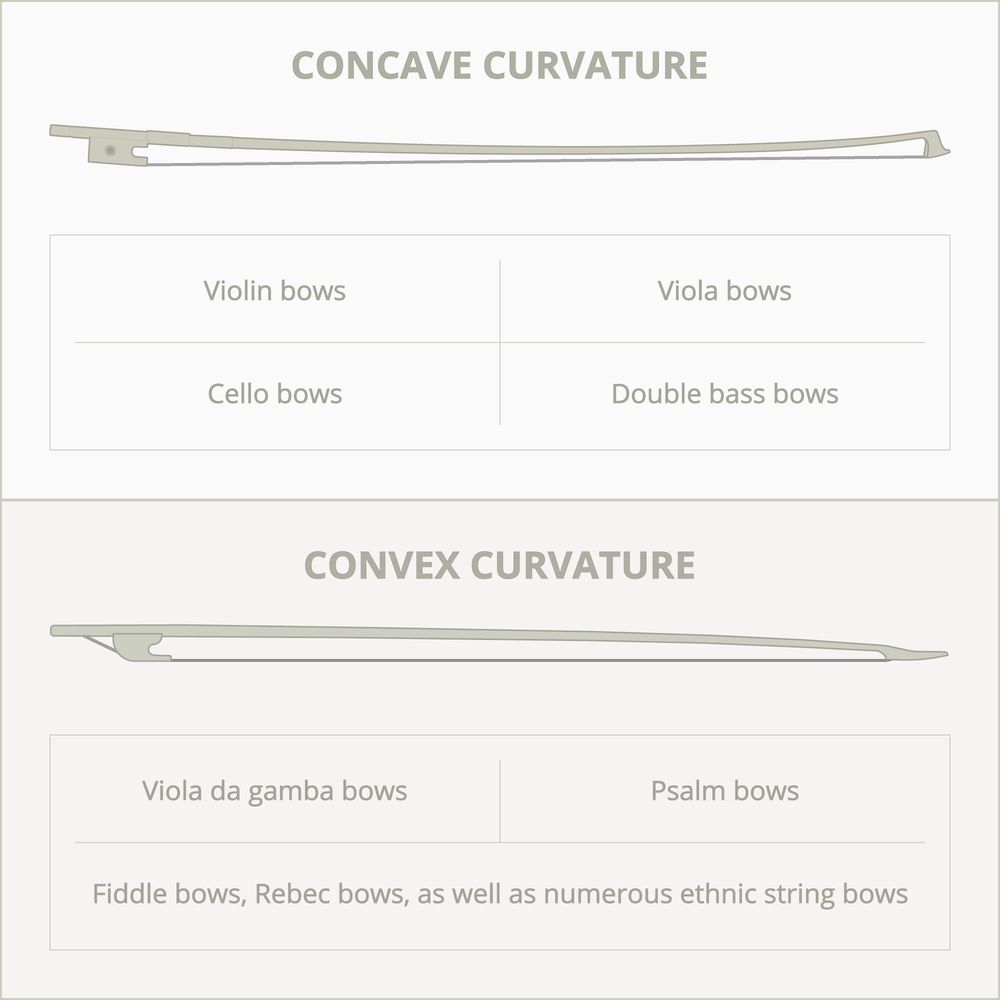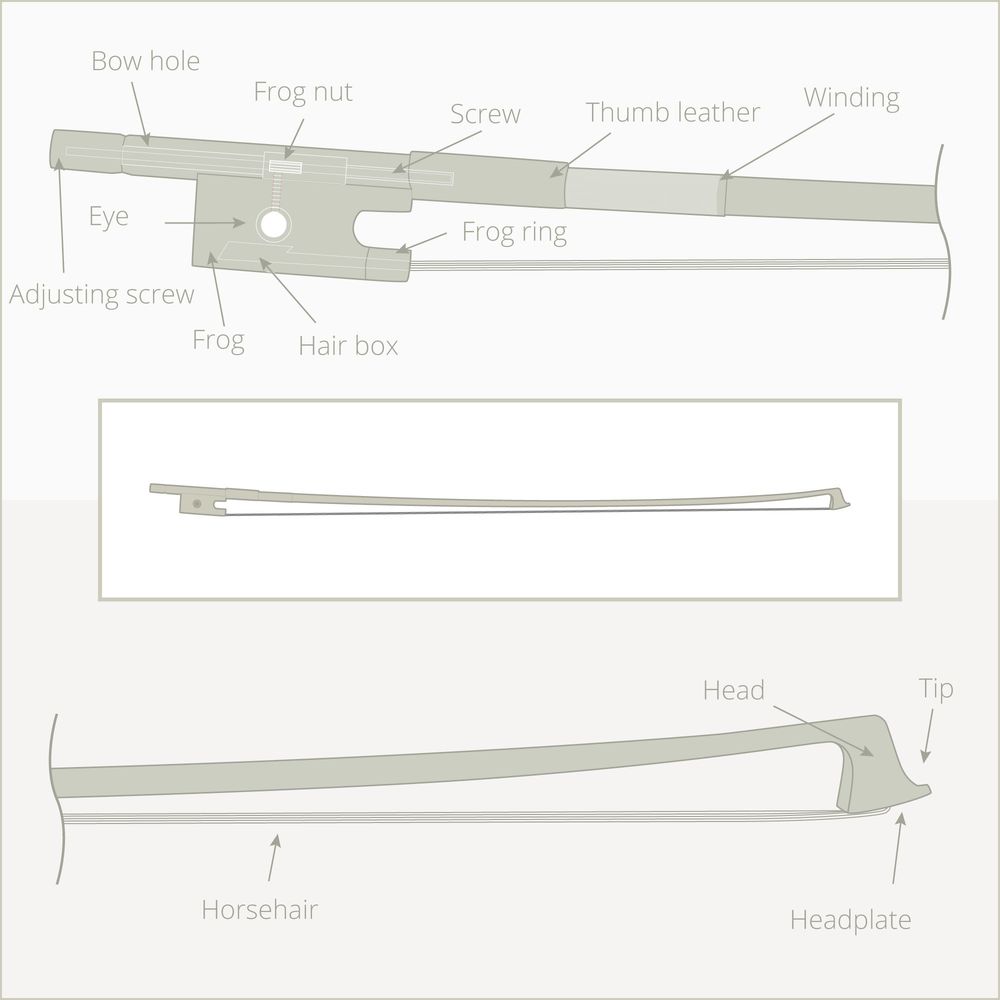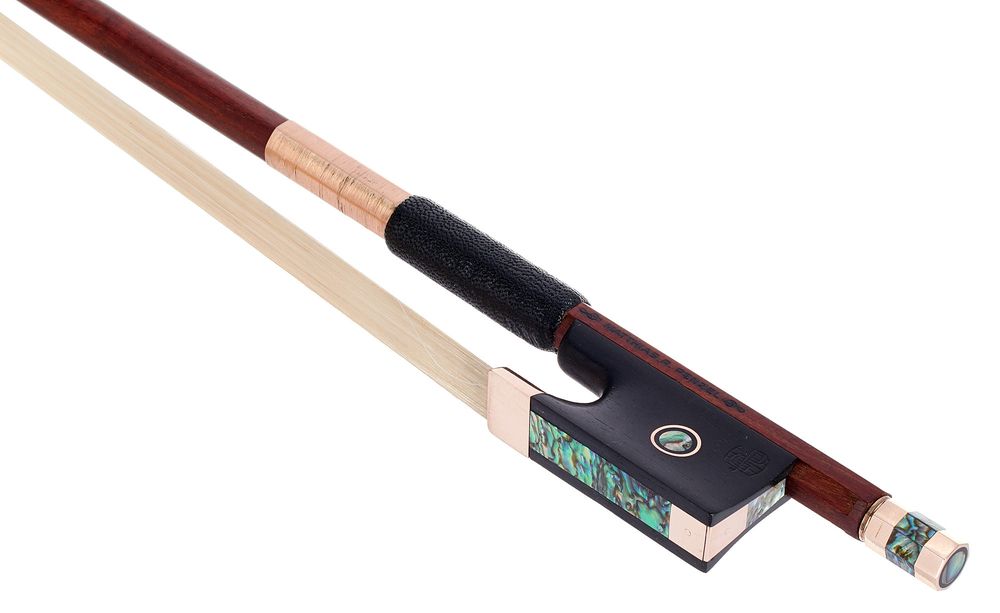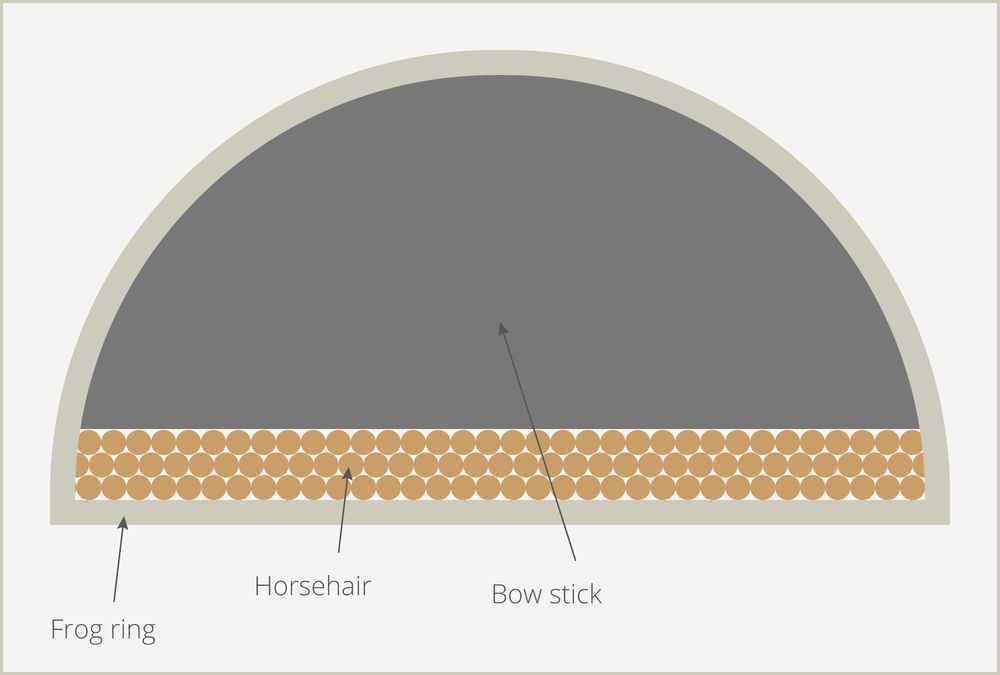4. Shapes and Structure
Bows often categorize into those with a concave and convex curvature, a crucial distinction in the bow's design.

Concave / Convex
Yet, unless you're playing an ethnic instrument like the viola da gamba, you're unlikely to encounter convex bows much.
So, let's dive into the detailed anatomy of a bow with a concave curvature.

Anatomy of a bow with concave curvature
Virtually all violin, viola, cello, and bass bows share common components.
The frog, where bow hairs are attached variably, remains a pivotal component. It securely fastens to the bowstick via an adjustable screw.
The hair is nestled within the hair box, tied together with knots. Typically carved from ebony, the frog was historically crafted from ivory, mammoth, or horn.

Frog
Different bows can be distinguished by their frog characteristics:
- The viola frog tends to have a rounded shape.
- The violin frog ends in a right angle.
- The cello frog is rounded but larger than the viola frog.
- Bass bows differ between the German frog (large, wide, rounded) and the French frog (similar to the cello frog but larger).
The adjusting screw, located at the bow's rear, is a rotating handle housing a tension screw. It adjusts the bow's tension and can be either single or multipart (usually three-part). It's typically crafted from nickel silver, silver, gold combined with plastics, or wood.
Adjacent to the frog, you'll find the thumb leather.
This leather protects the stick from perspiration and enhances grip comfort. It can be crafted from various leathers (synthetic leather, leatherette, or genuine leather).
Just ahead of the thumb leather, there's a wire winding.
The winding safeguards the bow from hand oils and contributes to its balance. Materials for the winding include nickel silver, silver, gold, or faux whalebone.
The frog ring accommodates the ring wedge, ensuring an even distribution of the inserted hair across the playing surface.

Frog Ring
Decoratively, you might find a mother-of-pearl inlay, often referred to as the "eye," on the frog.
The eye is purely ornamental and comes in two styles: a simple eye or a Parisian eye. The latter features an additional thin ring of nickel silver, silver, or gold around the eye.

Simple eye and Parisian eye
And now you might wonder why there are bows in various price ranges at all.
After all, they all have a bowstick and hair, so what's the difference?






